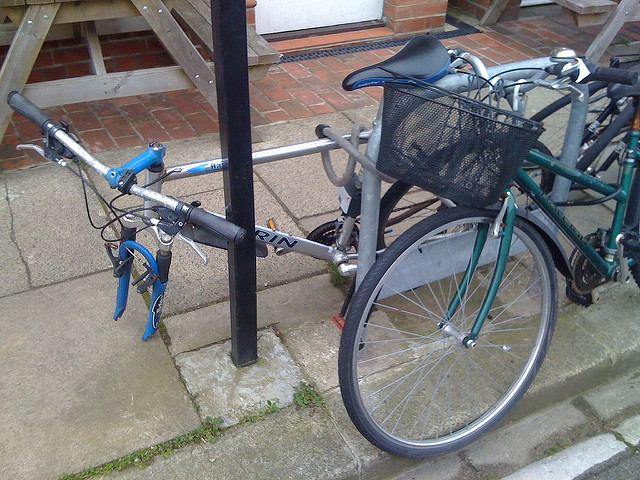Compound Verbs in Hindi: लेना/Lenaa (Part 2) Posted by Rachael on Mar 28, 2018 in Uncategorized
You’ll recall that we talked about Compound Verbs in Hindi last week. As a refresher, a compound verb is merely a (usually) two-word verb that includes a verb stem and an auxiliary verb. In a compound such as this, the auxiliary verb loses its primary meaning and, instead, adds a different shade of meaning to the compound. We have the same concept in English when we say compound verbs like “flopped down” or “believe in”––two-word verb combinations that, in English at least, usually involve a verb + phrase or a verb + preposition to convey a slightly different meaning than if the verb were on its own. Last week, we talked about the verb देना/denaa (to give) as used in a compound; as an auxiliary verb in a compound, देना loses its primary meaning of “to give” and adds a different shade of meaning to the verb, indicating a sense of a benefit or movement of an action flowing AWAY from the doer. Today we’ll be talking another addition to the compound verb party: लेना/lenaa (to take).
लेना/lenaa or “to take,” predictably enough, involves the movement or benefit of the verb flowing TOWARD the doer. This makes sense because, even in its normal sense as “to take,” लेना/lenaa suggest the subtle sense that the action or benefit of a verb is flowing toward the doer as the doer is “taking” something for him or herself, as opposed to giving something away, as देना/denaa suggests. Here are some common ways to use लेना/lenaa in a compound verb:
- मैं अच्छी उर्दू बोल लेती हूँ/Main acchi Urdu bol leti huun (I speak good Urdu).
- (आप) पत्र पढ़ लीजिये/(Aap) Patra parh lijiye (Please read the letter (to yourself).
- (तुम) लेक्चर के दौरान नोट्स लिख लो/(Tum) Lecture ke dauraan notes likh lo (Take notes during the lecture (for yourself).
- (तुम) छुट्टे रख लो/(Tum) chutte rakh lo (Keep the change (for yourself).
- (हम) लता मंगेशकर का नया गाना सुन लें?/(Hum) Lataa Mangeshkar kaa nayaa gaanaa sun le?/Shall we listen to Lata Mangeshkar’s new song (for ourselves)?
- परसों मैंने बहुत सारे कपड़े खरीद लिये/Parso maine bahut saare kapare kharid liye/The day before yesterday I bought a lot of clothes (for myself).
- मेरे पर्स से मेरा पैसा ले लो/Mere purse se meraa paisa le lo/Take the money (for yourself) from my purse.
These are several common usages of लेना/to take in a compound verb. Now let’s explore them in detail:
- मैं अच्छी उर्दू बोल लेती हूँ – This one may not seem obvious at first but, when you look at it in depth, it makes perfect sense. In order to learn a language or acquire any type of skill, you have to engage in extensive practice. लेना/lenaa is used in exactly this sense when speaking of an achievement or an acquired skill, such as command over a foreign language, because when you are practicing to acquire a skill, the benefit of the action is flowing toward you. This is why you can say something like: मैंने जयपुर में हिंदी सीख ली/Maine Jaipur me Hindi sikh li (I learned Hindi (for myself) in Jaipur) or something like उसने पिछली गर्मियों में तैरना सीख लिया/Usne pichlee garmiyon me tairnaa seekh liyaa (He learned how to swim (for himself) last summer).
- आप पत्र पढ़ लीजिये – This is the exact opposite of “आप पत्र पढ़ दीजिये” where the implication is that you should read the letter “out loud.” In the example with लेना/lenaa the implication is instead that you read the letter “to yourself,” in which case the benefit of the action (reading) flows toward you and no one else because others cannot hear what you are reading.
- तुम लेक्चर के दौरान नोट्स लिख लो – This is also the opposite of its counterpart “लेक्चर के दौरान नोट्स लिख दो” which has the sense of “write out notes during the lecture,” with the implication being that these notes may not be (solely) for your own use. In the first example with लेना/lenaa, the suggestion is that you are writing the notes for your own use and benefit and therefore the benefit of the action is flowing toward you, the doer.
- तुम छुट्टे रख लो – When you tell someone to “keep the change,” it is rather transparent that he or she benefits from this action of keeping leftover money and therefore the advantages of the action themselves flow toward the doer (the one “keeping” the change).
- (हम) लता मंगेशकर का नया गाना सुन लें? – Here, the benefit is perhaps less obvious. But, when you think about it more, listening to a song (especially one you enjoy) or anything else implies the movement from the source of the sound or music to the hearer, indicating a benefit or direction toward the doer (who, in this case, is the listener). The implication with this sentence is that you, the hearer, are benefiting from listening to the song rather than the opposite sentence, लता मंगेशकर का नया गाना सुना दो/दीजिये which means sing (out) Lata Mangeshkar’s new song (for me) where the benefit flows toward the hearer (in this case the indirect object of the sentence) and not toward the doer (the singer).
- परसों मैंने बहुत सारे कपड़े खरीद लिये – Likewise with the “change” example, when you buy something for yourself, whatever it may be, the benefit of the action is flowing toward you, the doer, so लेना/lenaa is appropriate. The opposite of this would be something like परसों मैंने तुम्हारे लिये बहुत सारे कपड़े खरीद दिये (“The day before yesterday I bought a lot of clothes for you”) with the sense that the benefit of the action (buying) is flowing away from the shopper and toward the beneficiary of that person’s generosity (तुम) and therefore देना/denaa is more appropriate.
- मेरे पर्स से मेरा पैसा ले लो – Again, taking the money from someone else’s purse implies that the benefit of the action is flowing toward the taker rather than the person who originally owned the money.

Build vocabulary, practice pronunciation, and more with Transparent Language Online. Available anytime, anywhere, on any device.






